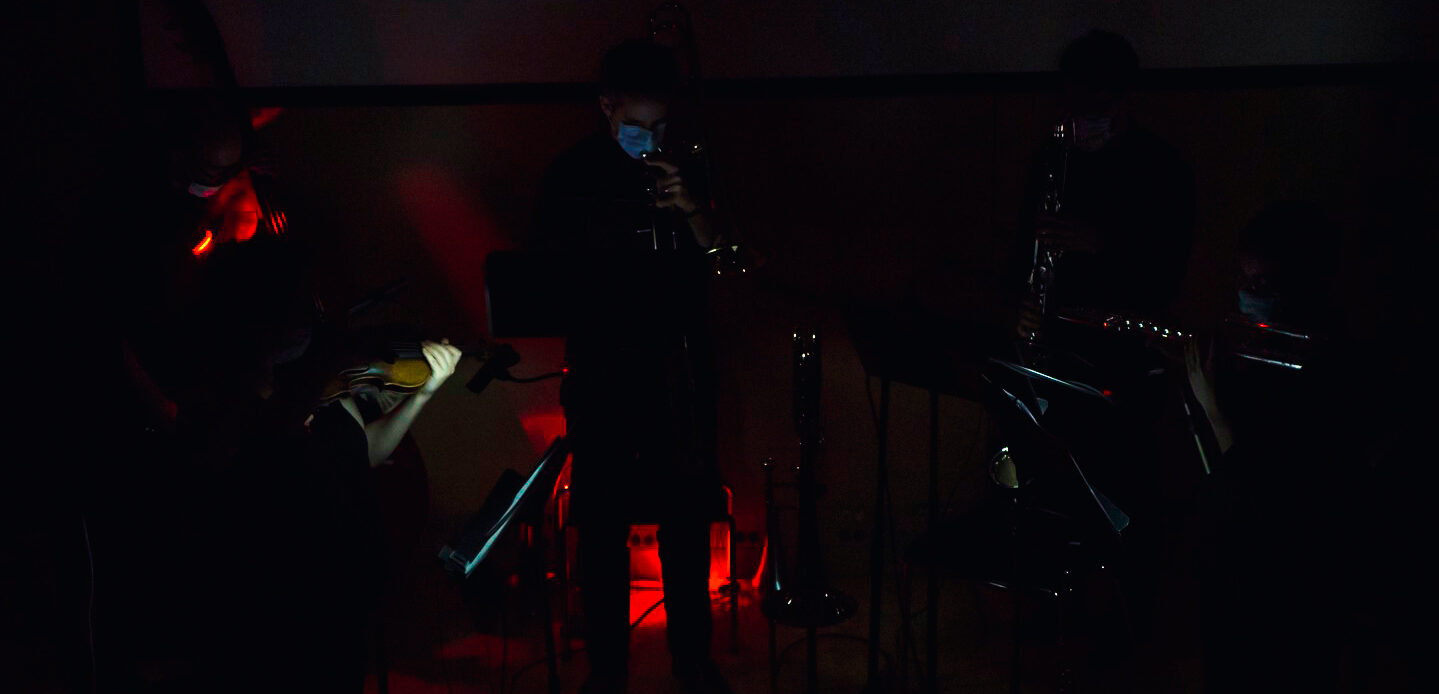The events of the last few months, as well as the latest election results in several European countries, reminded me of Bilećanka, one of my projects//intermedia compositions premiered by ensemble mise-en at Austrian Cultural Forum New York in 2016.
Brief digression: I was personally always “into politics”. Everything is political. At least since the humans evolved from a small arboreal primate into an intelligent, socially organized species. It is well known that Aristotle famously coined the term “zoon politikon” in order to describe the obvious fact that we develop our potentials and realize our natural ends in a social contexts.
Now to Bilećanka.
Back then in 2016, it was more than obvious that we are finding ourselves, once again, in the age of morbid symptoms. You could smell it, feel it, almost “touch it”. Premiere of the piece was scheduled for May 2016. Trump was already presidential candidate; Europe was plagued with an exponential rise of the far-right, social media corporations took on every aspect of our virtual lives, and not only that – they metastasized into a dangerous, all-encompassing, manipulative entity, that is extremely subjectivizing our very perception of reality.
What can one do as a new music composer? For me, art was always deo jedne jedinstvene čovekove borbe protiv zla, as Dragan Jeremić wrote in Doba antiumetnosti (=Art is part of a unique capacity of man in his struggle against evil). When I say always, I mean since I was a teenager, after experiencing the brutal break up of my homeland Yugoslavia, subsequently living the war, living in war, living with war.
In this intermedia composition for ensemble, electronics and light, musicians are playing with surgical masks (four years before COVID-19); they wear “red alert” beacons, are motionless, seemingly indifferent, resigned.
BILEĆANKA – BACKGROUND (May 2016)
Just before the second world war, the Italian politician and philosopher Antonio Gramsci famously wrote in one of his prison notebooks: “The crisis consists precisely in the fact that the old is dying and the new cannot be born; in this interregnum a great variety of morbid symptoms appear.”
Today, we live in a time of such morbid symptoms. There are uncomfortable echoes, among those morbid symptoms, of Europe’s history of fascism. Morbid symptoms are not constrained to one or another European state but are the outcome of a deeper problem rooted in the capitalism itself. If we are not able to re-invent democracy in Europe, we are running into a catastrophe. And the name of this catastrophe, once the period of interregnum is over, is an all-out war.
BILEĆANKA – CONCEPT (05/2016)
The End of History obviously did not happen. What we are currently witnessing is the awakening of the fiend – the Horsemen of the Apocalypse are slowly but steadily crawling out of the landfill of history, disguised as the one and only combatants for the implementation of the will of of the peoples.
Bilećanka poem is written by Slovenian socialist Milan Apih, during his imprisonment in concentration camp for political prisoners in Bileća (Bosnia-Herzegovina), one of the many that existed back then in Kingdom of Yugoslavia. Three years later, Bosnian-Jewish Partisan Oskar Danon composed the famous arrangement of the song, that became some sort of a hymn of the Yugoslav antifascist resistance. This song is an underlying conceptual component of my composition.
Sound projection is comprised of the original recordings of some of the most important political events in Austria, as well as those in The Kingdom of Yugoslavia (1914-1938), in chronological order. Acoustic foundation of the 4-CH sound projection is the only remaining audio-recording of the Nobel Peace Prize Winner Bertha von Suttner. Symbolically, her words are not understandable. The speech from Paneuropean congress in year 1934 could very well be held today. Concept of the instrumental part demonstrates the passivity and manipulability of the masses – it symbolizes that the go with the flow philosophy is, at the end, the dominant doctrine of the peoples. Therefore, musicians with masks are metaphorical representations of those silent observers.
Belma Bešlić-Gál // written in May 2016
https://acfny.org/event/concert-young-austrian-and-american-composers-connections/m
